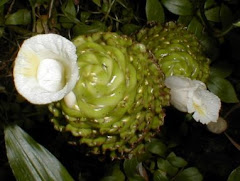
CLINICAL DATA
Wound healing
One non-randomised, un-blinded study assessed wound healing with polyethylene oxide wound gel or polyethylene oxide wound gel saturated with Aloe vera in 17 patients with acne vulgaris. Half-face treatments were carried out so that each patient received both treatments. By day 5, 90% of wounds were healed (complete re-epithelialisation) with Aloe vera compared with 40-50% without Aloe vera. Wound healing was 72 hours faster with Aloe vera .
One randomised, un-blinded trial assessed wound healing with standard wound care with or without Aloe vera dermal gel every 8-12 hours in 40 women after gynaecological surgery. All women had complications of wound healing after surgery. Details of the standard treatment were not provided and 50% of the women did not complete the trial. Mean healing time (to completely epithelised wound) was significantly longer with Aloe vera (83 days) than with standard treatment (53 days) .
Psoriasis
One randomised, double-blind trial assessed a topical 0.5% hydrophilic Aloe vera cream compared with placebo cream in 60 patients with mild to moderate chronic plaque-type psoriasis over four weeks. Patients were followed-up for 12 months. The rate of cure was significantly better with Aloe vera (83%) than with placebo (7%) with no relapses .
Radiation-induced skin injury
Two randomised trials assessed the effects of Aloe vera in women with radiation-induced skin injury associated with treatment for breast cancer. One trial was double -blind (194 patients) and found no significant difference in severity score between topical Aloe vera gel and placebo .
The other trial (108 patients) assessed usual care with or without topical Aloe vera gel; there was no significant difference between study treatments .
Genital herpes
Two randomised, double-blind trials compared topical Aloe vera cream (0.5% hydrophilic) or placebo three times daily for two weeks in 180 men with a first episode of genital herpes; one also assessed topical Aloe vera gel. Response rates in the two trials were almost identical. The proportions of patients cured in the two trials were 70% and 67% with Aloe vera cream, 45% with Aloe vera gel, and 7.5% and 7.0% with placebo. Aloe vera cream healing times were 4.8 and 4.9 day, 7.0 days with Aloe vera gel, and 14 and 12 days with placebo
Diabetes mellitus
There were 58 controlled clinical trials involving individuals with diabetes or impaired glucose tolerance (42 randomized and 16 non-randomized trials). Of these 58 trials, the direction of the evidence for improved glucose control was positive in 76% (44 of 58). Very few adverse effects were reported.































































No comments:
Post a Comment